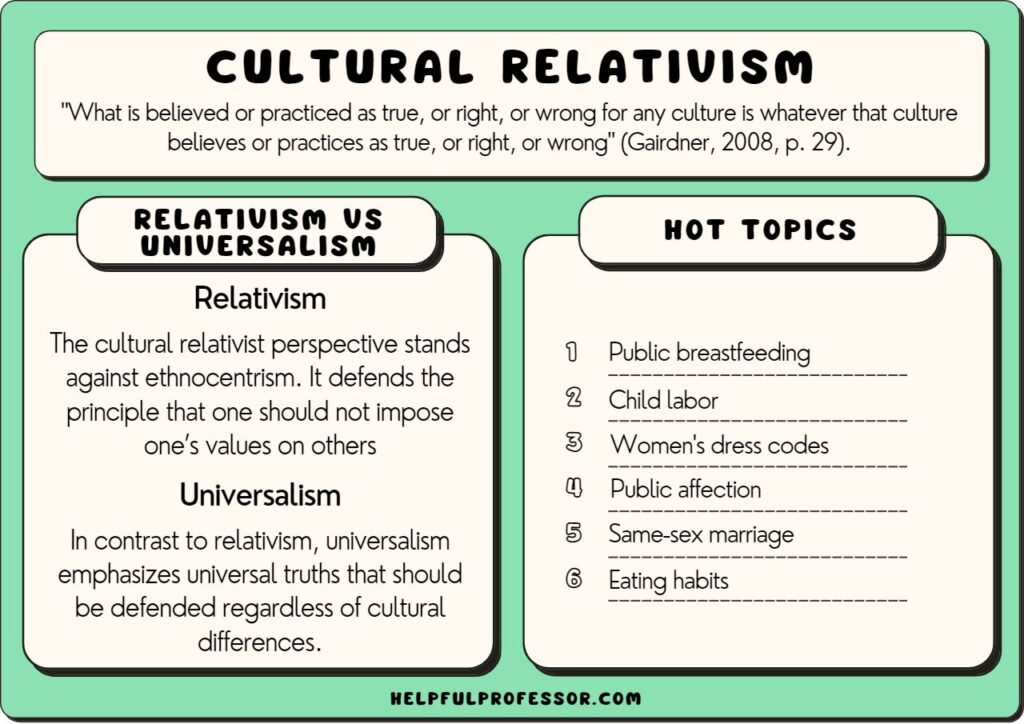The concept of moral relativism has become a pivotal topic in contemporary philosophical discussions, offering a radical shift in how individuals and societies navigate ethical dilemmas. At its core, moral relativism posits that moral judgments and ethical principles are not universally applicable but are shaped by cultural, social, historical, and personal contexts. This premise profoundly challenges traditional moral absolutism, which asserts that certain actions are intrinsically right or wrong, irrespective of context. As we delve deeper into this complex web of ideas, we unlock new dimensions of understanding human behavior and ethics.
First, it is essential to delineate the contours of moral relativism. It can be broadly categorized into two types: descriptive moral relativism and normative moral relativism. Descriptive moral relativism refers to the empirical observation that moral differences exist across cultures. For example, what is deemed morally acceptable in one society may be abhorrent in another. This observation evokes a sense of curiosity regarding the factors that contribute to such disparities. Normative moral relativism, on the other hand, takes a more prescriptive stance, arguing that because of these differences, we ought to adopt a perspective that recognizes the validity of diverse moral systems. This normative aspect prompts deep reflection on the implications of moral judgments in a pluralistic world.
One cannot ignore the historical context that has spurred the rise of moral relativism. The expansion of globalization and increased interconnectedness among cultures have rendered the notion of absolute morality increasingly untenable. These intercultural exchanges challenge individuals to reconsider their moral frameworks. In this light, one might ponder the role that cultural narratives and social customs play in shaping our moral compasses. For instance, consider practices such as polygamy, which are accepted in certain societies but rejected in others. Such contradictions serve as a microcosm of the broader debates within moral philosophy.
Moreover, the discourse on moral relativism engages with several thought-provoking questions. If ethical principles are truly subjective and contingent upon cultural contexts, does this imply that all moral perspectives hold equal weight? Alternatively, can one establish a common ground for moral evaluation among disparate cultures? These questions invite further inquiry and propel dialogues around human rights, social justice, and ethical responsibility. The challenge lies not only in acknowledging these differences but also in navigating them with sensitivity and respect, avoiding the pitfalls of ethnocentrism.
An intriguing aspect of moral relativism is its potential application to contemporary ethical dilemmas, particularly in addressing global issues such as climate change. The severity and immediacy of environmental crises demand a critical examination of moral responsibilities across divergent cultures. While some cultures may prioritize economic growth over environmental sustainability, others may espouse principles of stewardship and conservation. This divergence highlights the urgent need for a collective ethical approach that harmonizes various moral perspectives to tackle pressing global challenges.
Furthermore, the urgency of climate activism necessitates an engagement with moral relativism to foster cross-cultural solidarity in environmental efforts. Emphasizing empathy and understanding can enhance collaborative initiatives and promote sustainable practices that respect diverse cultural values and beliefs. For instance, indigenous communities often possess profound insights into ecological stewardship that may contrast with modern industrial practices. Recognizing and integrating these values can lead to more effective and culturally attuned environmental policies.
In addition, moral relativism introduces the concept of ethical pluralism, an essential framework for understanding the diversity of moral practices. Ethical pluralism asserts that there is no singular correct moral answer but rather a plurality of valuable perspectives. This perspective not only fosters tolerance but also encourages individuals to engage in meaningful conversations about differing moral beliefs. Such dialogues can enrich our collective understanding and inspire innovative solutions to challenges that transcend geographical and cultural borders.
As one contemplates the implications of moral relativism, it becomes crucial to grapple with its potential drawbacks. Critics argue that unchecked relativism may lead to moral nihilism, where individuals eschew any sense of accountability for their actions. The fear is that if all moral frameworks are considered equally valid, then harmful practices may find justification. This concern underscores the necessity for a balance—acknowledging cultural diversity while simultaneously advocating for universal ethical standards that prioritize human dignity and the health of our planet.
Moreover, the exploration of moral relativism is, at its heart, an invitation to expand our ethical horizons. It compels individuals to scrutinize the foundations of their beliefs and consider the myriad influences that shape their morality. By fostering a mindset of curiosity and openness, society can navigate the intricate interplay between culture and ethics with a renewed sense of purpose. The act of engaging with diverse moral perspectives is not merely an academic exercise; it is a profound journey of existential inquiry that can lead to a deeper understanding of what it means to be human.
In conclusion, the concept of moral relativism opens a gateway to reimagining ethical frameworks in an increasingly interconnected world. By appreciating the kaleidoscope of cultural values that influence moral judgments, we embark on a quest for greater understanding and collaboration. This shift in perspective holds transformative potential, not only for individual moral development but also for collective action in the face of global challenges such as climate change. Ultimately, this exploration is a call to embrace moral curiosity, empathy, and a commitment to fostering a more inclusive and harmonious world.
